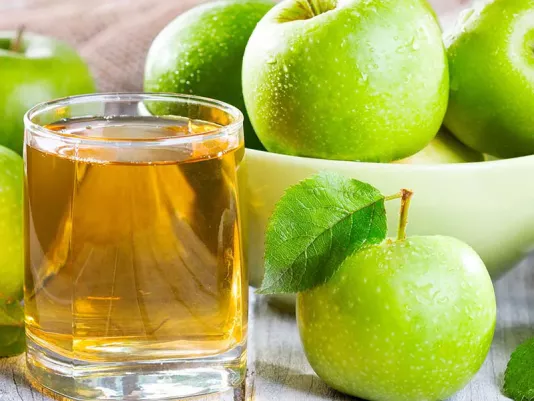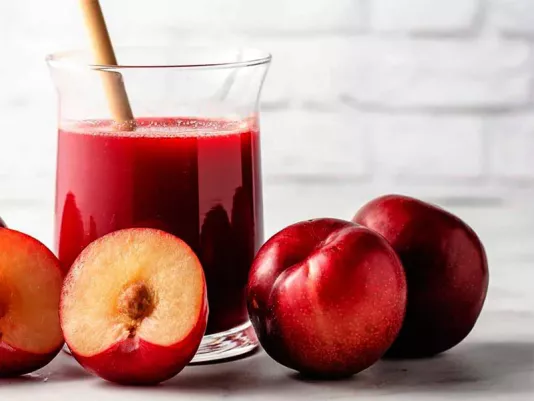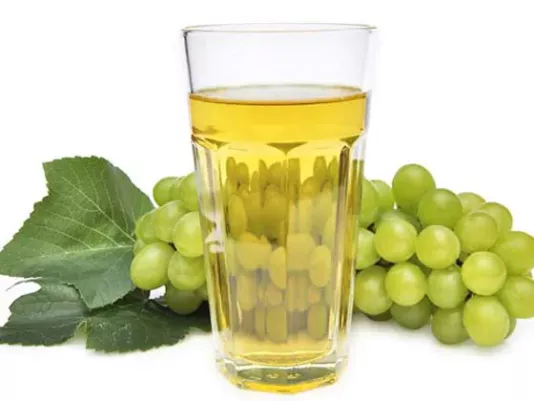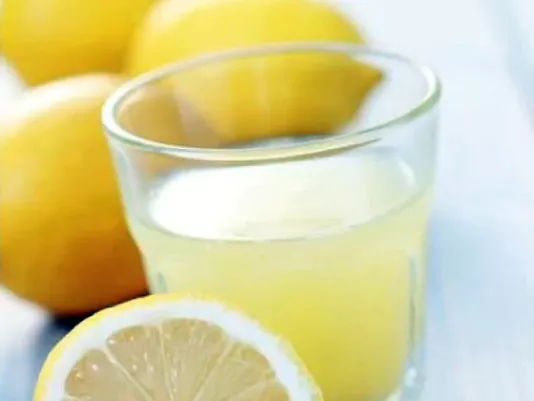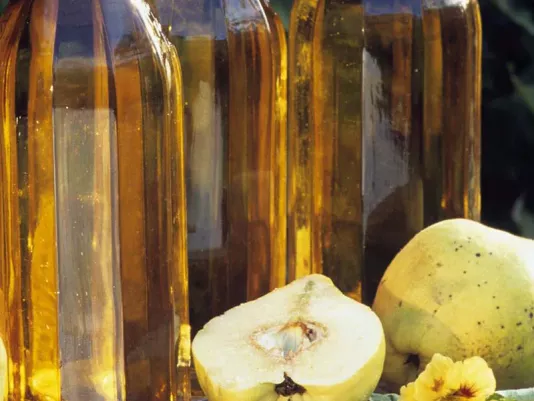Natural Juices
Natural juices in my cooking practice always hold a special place because they allow me to add bright flavor accents to dishes while making them healthier. For me, juices are a universal ingredient that can serve as a base for sauces, marinades, salad dressings, or desserts. I love using apple juice in baking because it gives the dough light sweetness and pleasant moisture, making cakes and pies more tender. Grape juice helps create rich fruit sauces and mousses and works well for making marmalade. Tomato juice is irreplaceable in soups and stews – it enhances their taste, deepens the aroma, and adds a special touch to sauces. I add orange and lemon juices to creams, glazes, and baked goods to emphasize freshness and balance the taste. I consider pomegranate juice one of the most original ingredients, as it brings both vibrant color and noble tartness, which pairs wonderfully with both meat dishes and desserts. Using juices in my kitchen, I always notice how even simple recipes become special, while dishes gain new expressiveness and harmony.
Different Types of Natural Juices
Fruit Juices in Desserts
I always use fruit juices as the base for desserts with natural taste and aroma, as they help highlight the lightness and freshness of a dish. Apple juice has become indispensable for me in making pies, strudels, and cakes: it gives the dough pleasant moisture, makes it softer, and enriches fruit fillings with juiciness and aroma. I often add grape juice to mousses, jellies, or fruit puddings, as it creates a rich aftertaste and helps achieve a beautiful, dense texture. Quince and cherry plum juices are especially valuable to me because of their pleasant tartness, which perfectly balances the sweetness of creams, sponges, or soufflés. I use orange juice universally: it can be turned into a fragrant glaze for cakes, added to sponge batter, or used as a base for ice cream, giving it a delicate citrus flavor. Lemon juice is always at hand since just a few drops in cream, sauce, or syrup can change a dish, making it brighter and more balanced. By using different fruit juices in desserts, I’ve realized that they add a sense of naturalness and bring desserts the kind of lightness that cannot be achieved with flavorings or artificial additives.
Vegetable Juices in Dishes
I use vegetable juices less often, but every time I do, I see how much they can enrich a dish’s flavor. Most often, I turn to tomato juice, as it is perfect as a base for sauces, soups, and stews. Thanks to it, pasta sauce becomes rich and vibrant, while borscht or vegetable stew acquires a distinctive aroma and pleasant tanginess. In meat dishes, tomato juice helps make the meat more juicy and tender, especially when I use it as part of a marinade. Sometimes I add tomato juice to baked goods, such as savory pies or muffins, to make the taste more interesting and add original color. While I don’t use other vegetable juices as often, I know they can diversify recipes, make them healthier, and give them a new character. It is thanks to such ingredients that I can experiment and discover new combinations that bring dishes not only flavor but also individuality.
Juices in Marinades and Sauces
For me, juices are among the best ingredients for marinades and sauces because they help not only to add a special taste to dishes but also to change their texture. I often use lemon juice as the base for fish or chicken marinades – it gives the meat tenderness, making it softer and more aromatic. Orange juice adds light sweetness and citrus freshness to marinades, which is perfect for pork or duck. Pomegranate juice, with its deep taste and rich color, I love to use in salad dressings or as part of a meat sauce – it creates noble tartness and a beautiful shade. Apple juice pairs wonderfully with honey and spices when I make sauces for roasted vegetables or poultry, giving them a balanced taste. I even add tomato juice to marinades, as it gives dishes natural acidity and helps make meat juicier. Each of these juices in marinades and sauces lets me achieve different results – from delicate and subtle to rich and bold – which is why they have become my reliable helpers in the kitchen.
Juices in Baking and Drinks
I use natural juices in baking as flavoring and taste enhancers, as they make dough not only tastier but also juicier. I add orange and lemon juices to cakes, sponges, and muffins to bring them freshness and a light citrus note, making baked goods especially pleasant. Apple juice has become a universal solution for me: it can replace water or milk in recipes to make cakes softer and more tender, and it pairs perfectly with cinnamon and nuts. I sometimes add grape juice to yeast dough to create a delicate aroma and a subtle fruity sweetness. I also want to highlight using juices in drinks: I make homemade lemonades, cocktails, or even warming drinks by adding spices and honey. Pomegranate or orange juice combined with mint creates a refreshing summer drink, while apple juice with cinnamon and cloves makes a wonderful winter version. Thanks to juices, I can vary not only the taste of dishes but also the mood of the entire table, as they always add a sense of naturalness and freshness.
Combining Juices in Culinary Experiments
Over the years, I’ve learned to combine different juices to create new and unexpected flavor accents in dishes. For example, orange and lemon juices together form a bright sweet-and-sour base for creams or sauces, making desserts especially expressive. Apple juice combined with pomegranate provides meat sauces with a harmonious balance of sweetness and tartness while also giving them rich color. I love mixing grape juice with tomato juice when preparing marinades or sauces for roasted vegetables – this results in a more complex and rich taste. Even in drinks, I often experiment: apple juice with lemon and mint becomes a perfect summer cocktail, while combining orange and pomegranate juices creates a festive, rich flavor suitable for special occasions. These experiments inspire me to search for new combinations, and I always see that using juices opens endless possibilities for creativity. For me, they have long ceased to be just drinks – they are true culinary tools for creating original recipes and surprising guests.
